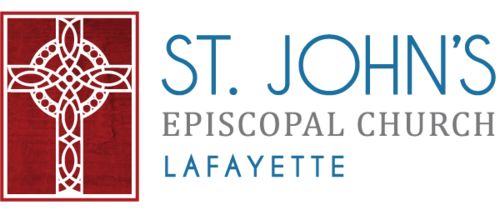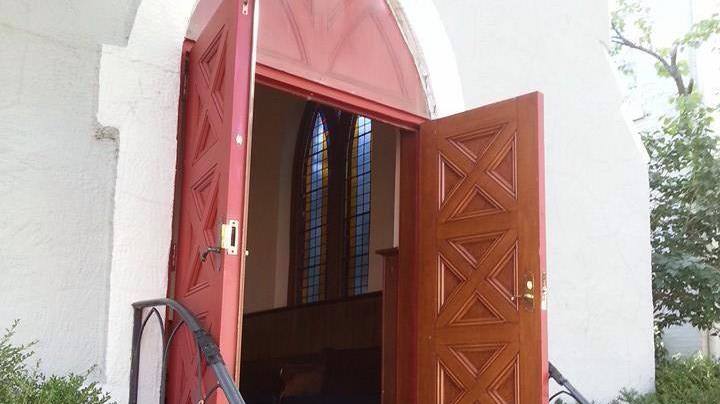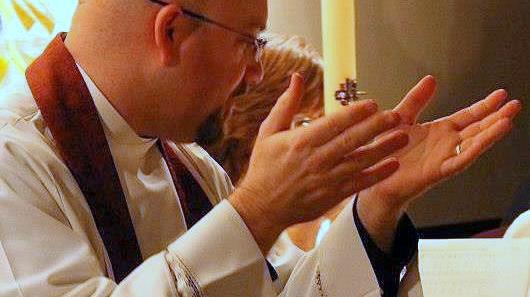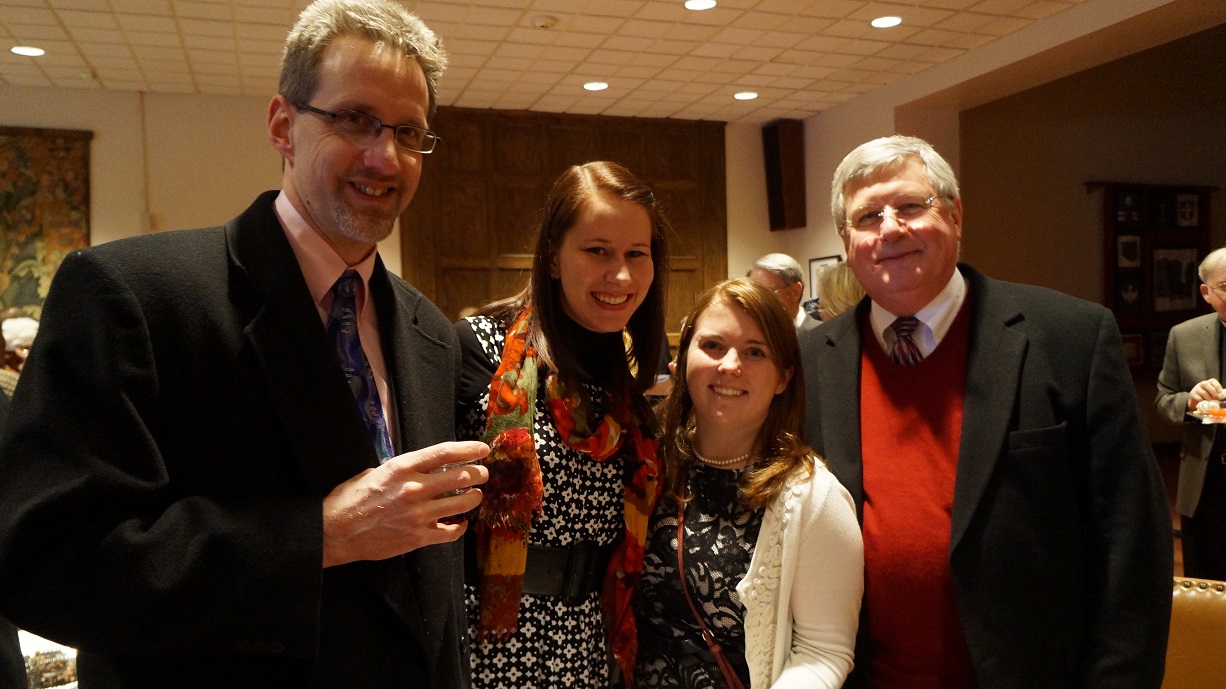Joining St. John's Lafayette
“Anglicanism has a big heart. And while this may prove to be its downfall, let’s give it the benefit of the doubt and say our dear old mum has wide open arms and a voluminous cozy bosom. She’s always lovely to come home to, because the kettle’s always on, and she never starts off with an interrogation as to where on earth we’ve been for the last ten years. It’s love first, questions later. All this makes for a very untidy house…for there’s always someone coming or going in this free and easy environment, and people loitering with good intent.”
One of the best descriptions of membership in the Episcopal Church comes from Richard Giles' book Always Open: Being Anglican Today. He says that membership is really just “loitering with intent.” (In case you didn't know, Anglicanism is the worldwide Church Communion of which the Episcopal Church is a rather small part). In general, this describes our attitude toward membership pretty well. If one of the clergy or staff get hold of your email address or, God forbid, your home address and phone number, you’ll end up on the mailing lists, be asked to join us in service of some kind, and even get a birthday card from the Rector. If not, once we get to know you, we’ll think of you as part of the gang even if your name never shows up in the official records.
The fact is, no one at St. John’s is going to compel you into anything. That’s not how we work. We don't even insist that you believe the same things we believe. Whereas some churches or denominations insist that you believe first, learn to behave second, and only then are you invited to belong; in the Episcopal Church, it works in the opposite direction. First off, you belong the moment you walk in the door. Then, if if you give us a chance, we’ll teach you how to behave (When am I supposed to cross myself anyway? What's a narthex?). Lastly, we hope you’ll come to know the God of grace and love we proclaim. Instead of compelling folks into membership, Giles says, “we aim to create the kind of local Christian community in which you will want to do more, because you are known and valued, and your gifts recognized. Once you have decided to jump in with both feet, you have real scope for effective Christian service and for influencing the Church’s way ahead.” If you've come to St. John’s long enough to get the Eagle (or we somehow figured out your mailing address), then we hope you have found St. John’s to be just that, the kind of Christian community that calls you into a deeper relationship with that very same God of grace and love.
All that being said, membership, official membership, says something about your level of commitment and it says something about who this local Christian community can call on when ministry happens. There are some official ways of making that happen.
If you came to St. John’s from another Episcopal Church or from several other similar denominations, you can become a member by filling out a “Transfer of Membership” form. You can get that by calling the church office at 765.742.4079 or by emailing HERE.
You can attend one of the Newcomers’ Classes and learn all about the Episcopal Church’s history; the way we view Scripture, tradition, and reason, and come to appreciate our ethos. Classes take place in the fall (late September-early October) and in the Spring (beginning at the start of Lent). For the record, along with getting to know others who are new to St. John’s, the class usually ends with BBQ at the rector's house. That’s always a good thing.
If you are new to the Christian faith, you can be baptized and confirmed in the Episcopal Church, records of which will be kept in the St. John’s registry.
These are the official ways to become members. Why does this matter? At the end of the day, joining an institution is not really the point, nor should we worry to much about the rules (please don’t tell the Bishop I said that). Instead, to quote Richard Giles again, “the Church is absolutely essential, not as a divinely appointed institution but as a place to be. And the place is not a building, but an assembly of faith, gathered every Sunday, where you hang out with Jesus and his crowd, catching into ideas and visions which are liable to get you in trouble.”
If you have found St. John’s to be a Christian community where you can worship God, where you find welcome and encouragement, and where you find the inspiration to serve God’s Kingdom, consider becoming an official member. Membership shows your commitment to this community and to our mission of worshiping God made known in Christ, of sharing God’s love, and to making Christ known in our community and to future generations.




